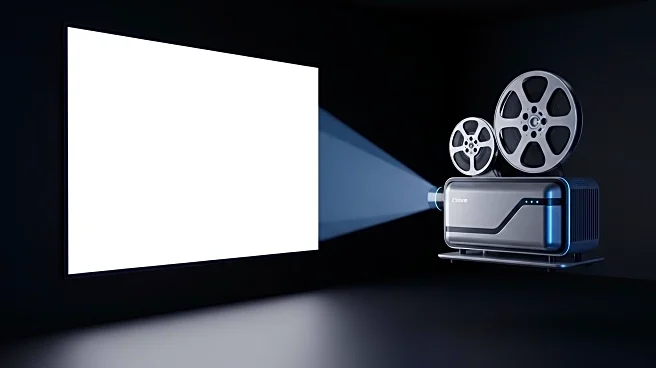What's Happening?
An Amazon-backed AI firm, Showrunner, is undertaking a project to recreate the lost footage of Orson Welles' 1942 film, The Magnificent Ambersons. The film originally had 131 minutes, but studio executives cut it down to 88 minutes, destroying 43 minutes of footage. Showrunner plans to use a combination of AI and traditional film techniques to reconstruct the missing scenes, including shooting sequences with live actors and employing AI tools for face and pose transfer to maintain the likenesses of the original actors. Despite the innovative approach, the Welles estate has expressed disapproval, citing concerns over the use of AI to replicate Welles' creative genius without their consent.
Why It's Important?
The project highlights the growing role of AI in the film industry, particularly in reconstructing and preserving historical works. While AI offers new possibilities for film restoration, it also raises ethical questions about the authenticity and creative integrity of such endeavors. The Welles estate's disapproval underscores the tension between technological innovation and artistic legacy. This initiative could set a precedent for future projects aiming to use AI in film restoration, potentially impacting how historical films are preserved and experienced by audiences.
What's Next?
Showrunner's project is not intended for commercialization due to rights issues, but it may influence future discussions on the use of AI in film restoration. The film industry and legal entities might need to address the balance between technological capabilities and respecting artistic legacies. The outcome of this project could lead to new guidelines or standards for using AI in reconstructing lost or damaged film footage.
Beyond the Headlines
The use of AI in recreating lost film footage raises broader questions about the role of technology in preserving cultural heritage. It challenges traditional notions of authorship and creativity, as AI-generated content becomes more prevalent. This development could lead to debates on the ethical implications of using AI to replicate the work of iconic filmmakers, potentially influencing future policies on digital restoration and intellectual property rights.









